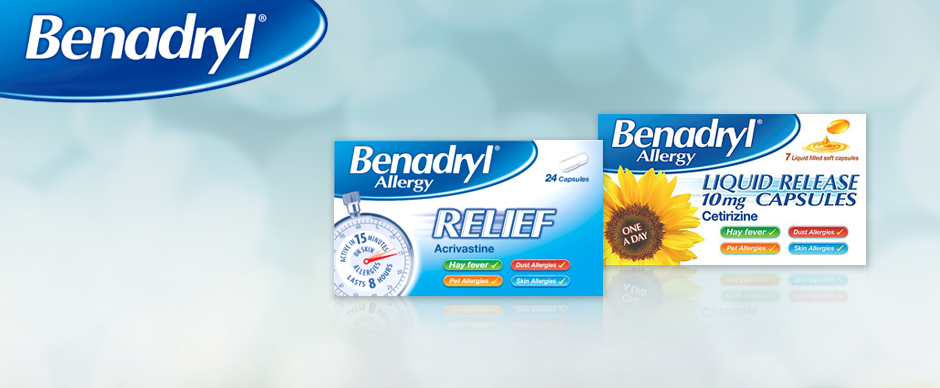
Understanding allergies
What’s an allergy?
The term “allergy” is used to define the reaction of your immune system to a substance that is generally harmless. Almost one fifth people suffer from allergies and they can manifest in a variety of forms ranging from mild to severe allergies.
What causes allergies?
A healthy immune system works to protect the body from foreign substances, called antigens, by producing antibodies to fight them. For most people simple things like pollen and dust are harmless, but for others their immune system involuntarily reacts and releases chemicals called histamines to attack the foreign substance. Histamines are what produce the symptoms of allergies and they can be triggered by things as simple as pollen and pet dander.
While most allergic reactions are irritating they are not serious and can be dealt with using a quality anti-allergy product like Benadryl. However, other allergic reactions can be fatal and even cause inability to breath or severe drop in blood pressure. Allergies like hayfever and dust allergies can be dealt with using an anti-allergy product but the more serious reactions should be treated by your doctor.
Allergy symptoms
- Sneezing and nasal congestion may indicate a drug or respiratory allergy.
- Coughing and wheezing may be a sign of asthma.
- Itchy eyes, mouth, and throat are general signs of hayfever.
- Stomach ache, frequent indigestion, and heartburn may be signs of food sensitivity.
- Irritated, itchy, swollen and red skin may be an indication of allergic reaction to certain drugs, food, or insect sting.
- Stiffness, pain, and swollen joints are rarely caused by food and drug allergies.
- If you suffer severe allergic reactions get immediate treatment.
Call your doctor immediately if:
- You have violent stomach cramps, vomiting, bloating or diarrhoea. This could mean that you have a serious allergy to a certain food or food poisoning.
- Breathing and swallowing becomes difficult or painful. This could mean that you are experiencing an asthma attack, anaphylaxis, or heart attack. In this case you should seek immediate emergency medical treatment.
- You suddenly develop skin welts and intense flushing and itching, or quickened heart beats. This may indicate the onset of extreme allergic reaction, anaphylactic shock. In this case you should seek emergency medical treatment.

